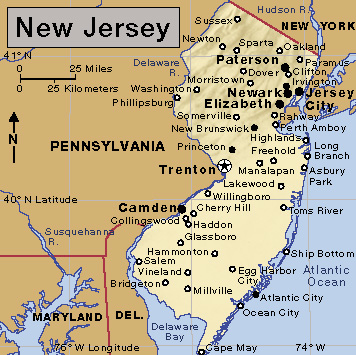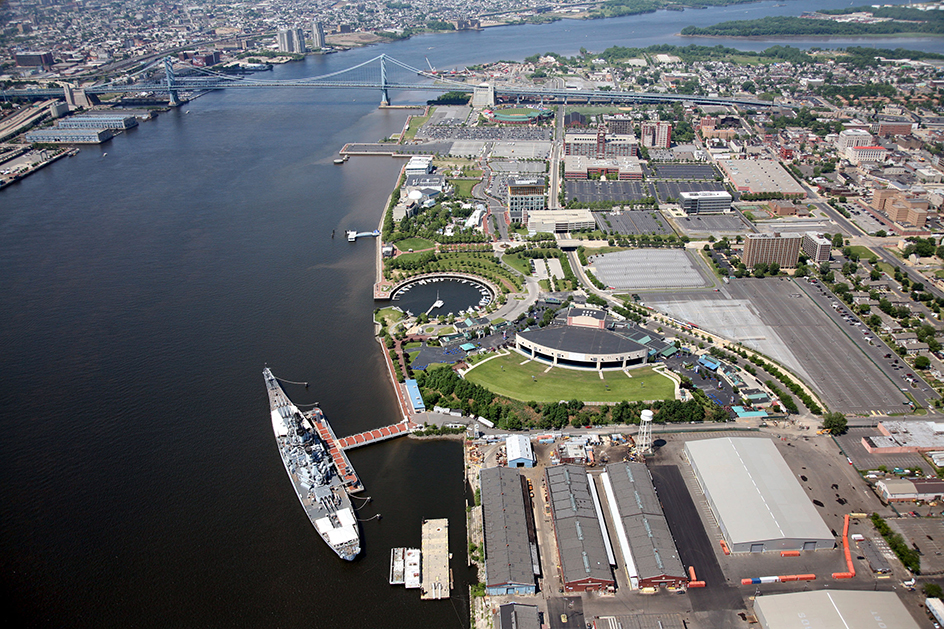Camden (pop. 77,344) is an industrial city in southern New Jersey. It lies on the Delaware River opposite Philadelphia. Shipping and manufacturing are among the city’s economic activities. The products made in Camden include fabricated metal products and communications equipment.

Rutgers, the State University of New Jersey, has a branch campus and a law school in Camden. The city’s museums include the home in which Walt Whitman, the great American poet, lived from 1884 until his death in 1892. Camden’s transportation facilities include the PATCO (Port Authority Transit Corporation) Speedline, a high-speed railway.

African Americans make up about 40 percent of the population. Hispanics, mostly of Puerto Rican ancestry, make up about 50 percent. Camden has a mayor-council government.
Delaware Indians lived in what is now the Camden area before European settlers arrived. In 1681, an English Quaker named William Cooper settled in the area. He began operating ferryboats across the Delaware. A settlement called Cooper’s Ferry grew up around the ferry landing. In 1828, the settlement was incorporated and changed its name to Camden for the Earl of Camden, a British political leader who had been sympathetic to the American Colonies.
The arrival of the railroad in 1834 spurred Camden’s development. By the end of the 1800’s, the city had become a leading center of industry. In the early 1900’s, it became one of the nation’s top shipbuilding centers. During World War I (1914-1918) and World War II (1939-1945), jobs in the shipyards brought thousands of workers to Camden. But in the mid-1900’s, Camden, like many industrial cities in the northeastern United States, began to lose jobs and population. Camden’s shipyards began massive layoffs and closed down in 1967. Many other industries moved out of the city, and the number of jobs dropped sharply. Also, many middle-income families moved to the suburbs.
By the end of the 1990’s, Camden had become the poorest city in the state and was approaching bankruptcy. In mid-2000, the New Jersey governor proposed that the state take over the job of governing Camden. From 2002 to 2010, the state controlled most of the city’s operations.
